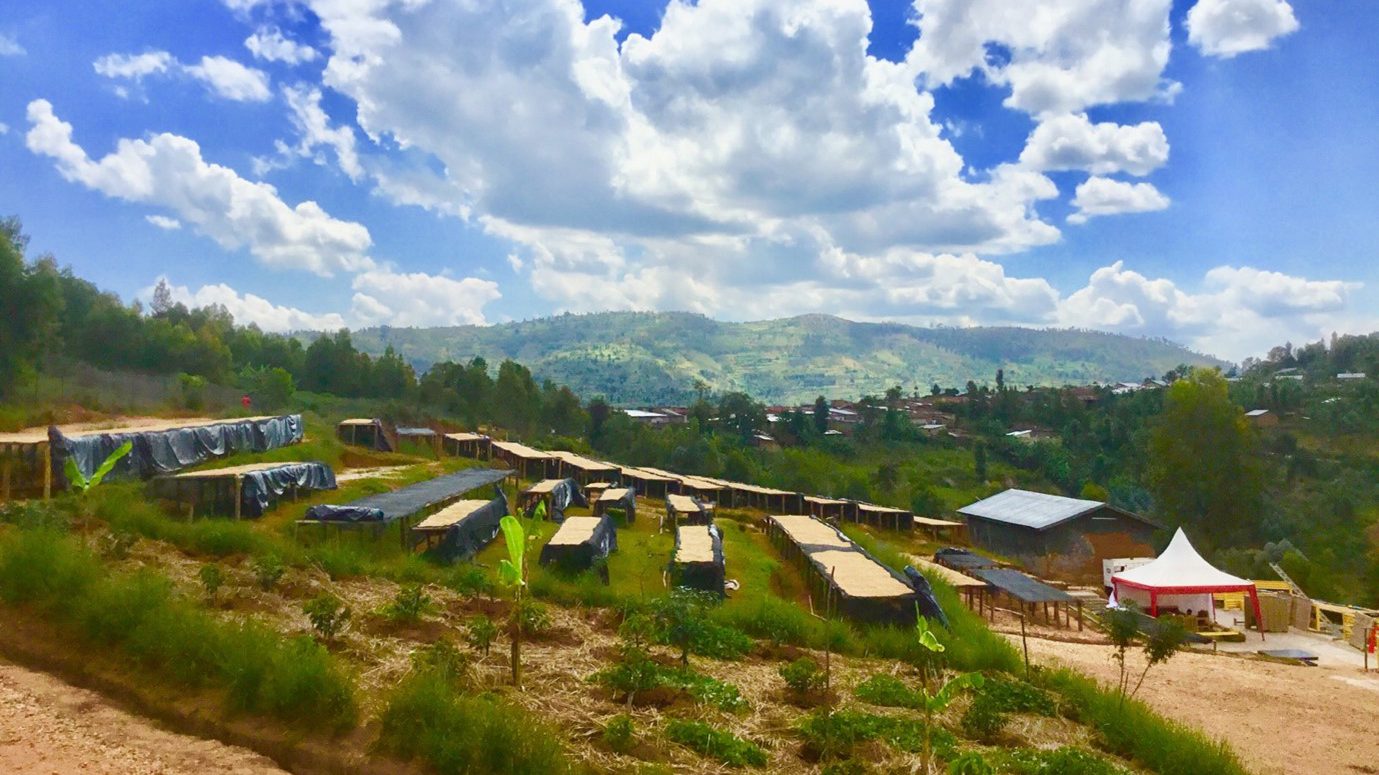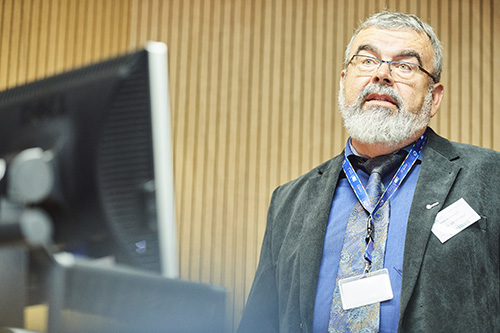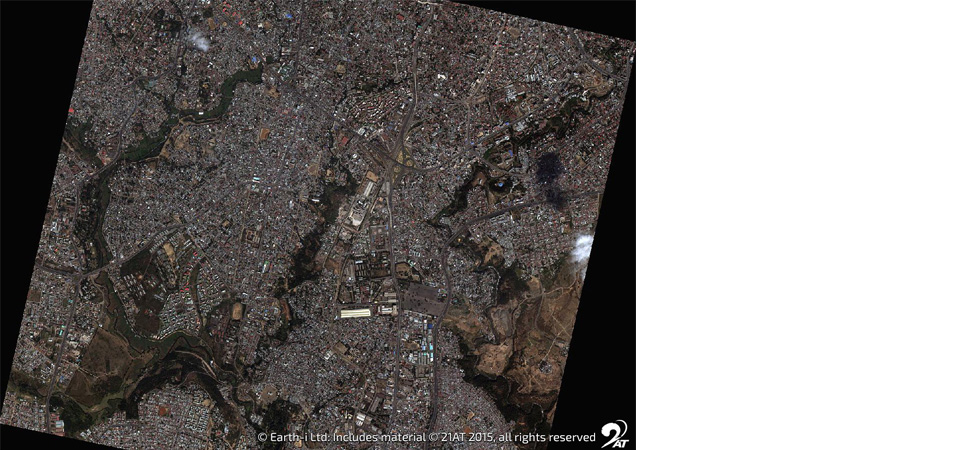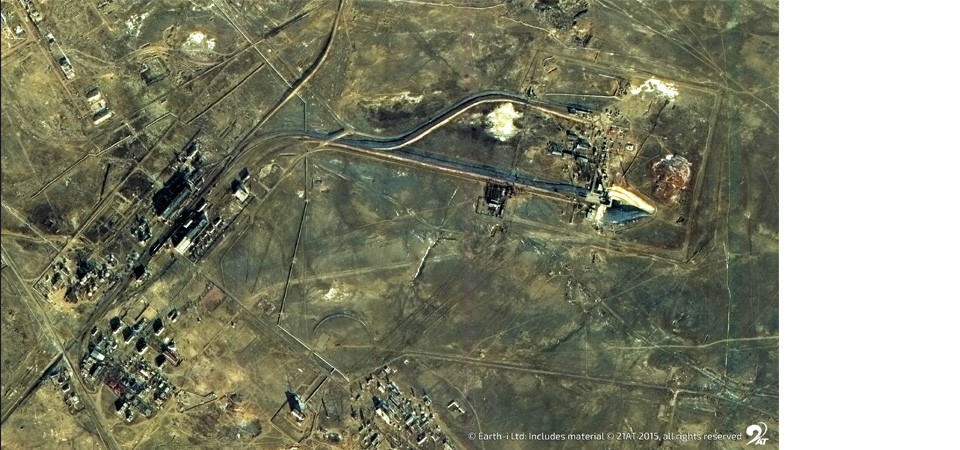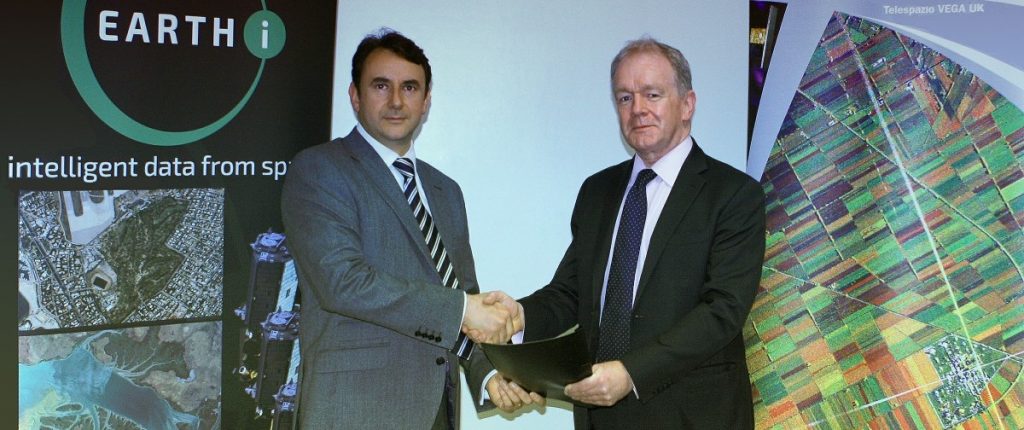SF Bay Coffee Company is a shining example of innovations for smallholder farmers in the African coffee business designed to improve livelihoods and sustainability. Farming five hectares in Kigoma Sector SF Bay’s 20,000 coffee trees sit at 1,743-1,935 metres above sea level. This location experiences varying temperature levels of 16-25 degrees, perfect for growing high-quality coffee. The company also sources coffee beans from around 1,960 coffee farmers in the surrounding Kigoma Sector. The company started operations in Rwanda in 2006 and became a partner in the ACCORD programme in 2018 to increase the level of support offered to its coffee farmers and help them tackle the impact of climate change.
We talked to the SFBC Rwanda Director, Mario Serracin, Ph.D. about their company, the challenges of climate change in Rwanda, and the impact of the ACCORD programme on their farmers.
What were SFBC original goals and expectations on joining the ACCORD programme?
SF Bay Coffee started as coffee buyers in Rwanda and East Africa sourcing from some 30,000 producers since 2006. Building on this experience they set up a model farm and coffee washing station, and an outreach programme to smallholder coffee farmers offering agronomic, weather advisory, social and business support programmes. They have a full soils-testing lab to optimise farm management and through the ACCORD programme installed a weather station on the farm.
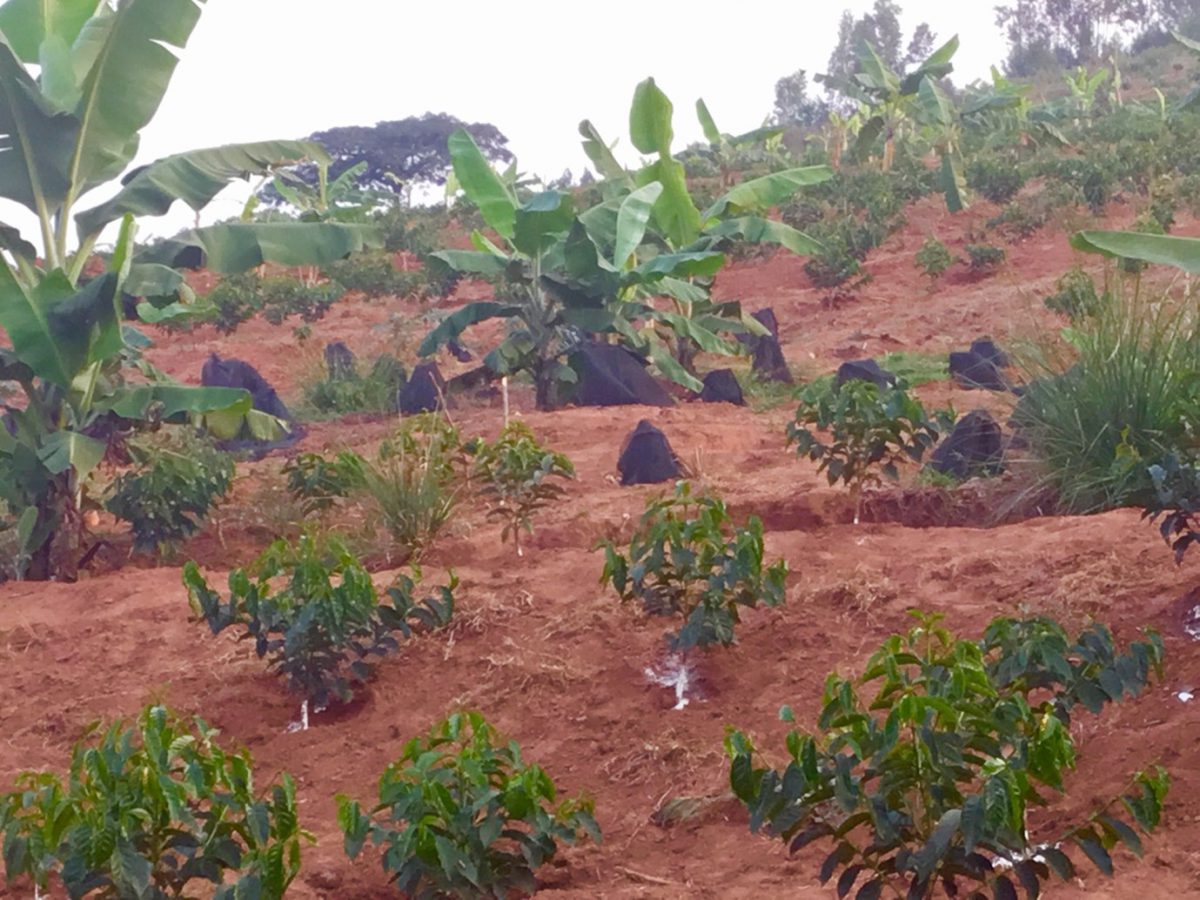
SF Bay’s demonstration plot showing inter-cropping with banana trees
SF Bay Coffee reached out to ACCORD in order to be more precise and effective in their farmer support, and in particular to improve the smallholder farmers knowledge of good agronomic practices. SF Bay Coffee’s main target in Rwanda has been to triple the farmers’ incomes by increasing yields and profits.
How does ACCORD fit with your wider vision and goals for your business and what you are trying to achieve for farmers?
SF Bay Coffee has so far mapped 1,960 farms and fields. The farmers had limited knowledge of coffee farming and were producing less than 1kg per tree. They also had limited access to inputs and agronomic support.
With the ACCORD project, the farmers have increased production and adopted improved agronomic practices which includes growing better coffee varieties, digging erosion channels, mulching the fields, improved scouting for pests, and effective pests and disease management.
Through the WeatherSafe platform, more than 200,000 messages advising these practices have been sent to farmers to date, helping to increase productivity and quality of the coffee beans.
They have lowered processing costs through a modern design of washing station and this enables the company to offer 67% of the green coffee price to farmers. The price offered by the company to farmers in last two years has been 29-42% higher than the minimum price set by regulator NAEB.
What are the most important interventions or innovations required to make smallholder coffee farming sustainable?
“Smallholder farmers need to be organised in producer organisations (cooperatives) in order to attain the right agro-inputs ahead of time and achieve economies of scale. They also require pre-financing to meet production costs”, said Mario Serracin.
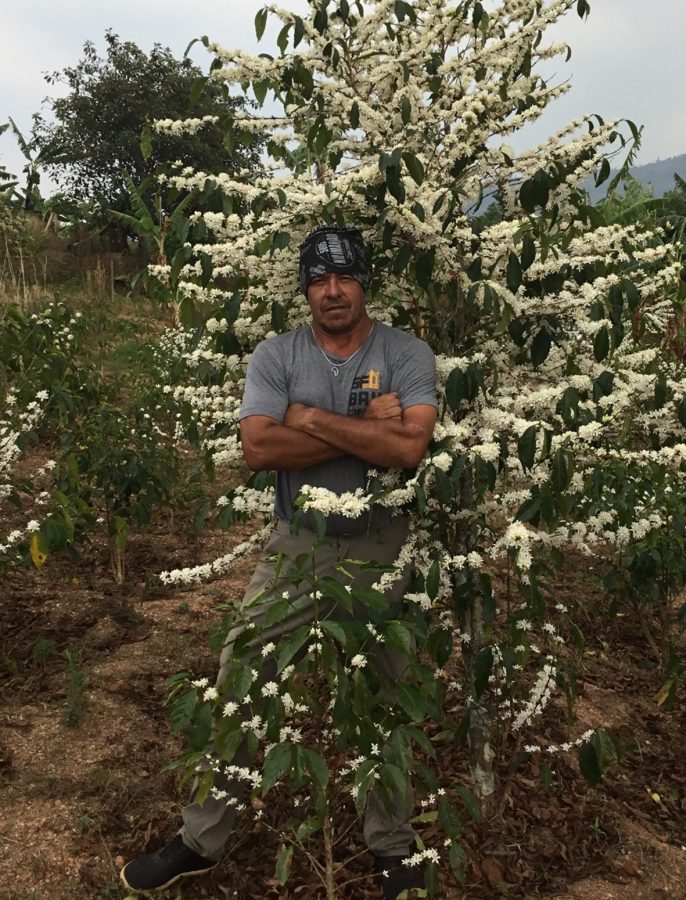
Mario Serracin, Director of SF Bay Coffee Rwanda
He notes that cooperatives are better able to negotiate for pre-financing to procure inputs on behalf of farmers and achieve better prices from coffee buyers. Shared services including transport, washing stations and marketing, also go a long way to ensure that farmers get improved returns.
How significant has been the impact of climate change on coffee farming in Africa?
Impact of climate change has been very significant, especially to smallholder farmers. Rwanda has witnessed extreme weather, changing rainfall patterns, increased temperatures and incidence of pests and diseases as a result of climate change. Some coffee varieties have completely disappeared since they could not withstand adverse changes in climate. Some smallholder farmers have even abandoned coffee altogether.
Application of the ACCORD service has enabled farmers to become more resilient to climate change and able to adjust their farming activities to cope. This has led to a significant reduction of costs of production, especially agro-inputs through the reduced wastage that comes from accurate forecasts of rainfall.
“ACCORD technology has addressed climate change challenges quite well, but we need higher resolutions at ground level and more access microclimate information”, said Mario Serracin.
How well has it integrated with your approach to innovation in coffee agronomy?
There were high expectations that the ACCORD service would support and enhance the company’s passion for innovation. The key was to use it to improve decision-making and outreach to farmers. This has proved to be the case in both areas.
For example, shortly after coffee trees were initially planted on the model farm three consecutive days of rain were predicted by the WeatherSafe platform. Reacting in advance, the company’s staff designed canals to capture the excess water to store for predicted drought days, and developed an gravity-based irrigation system. This efficient use of rainwater noticeably increased plant health and yields in the first year after planting, achieving results normally expected over three years.
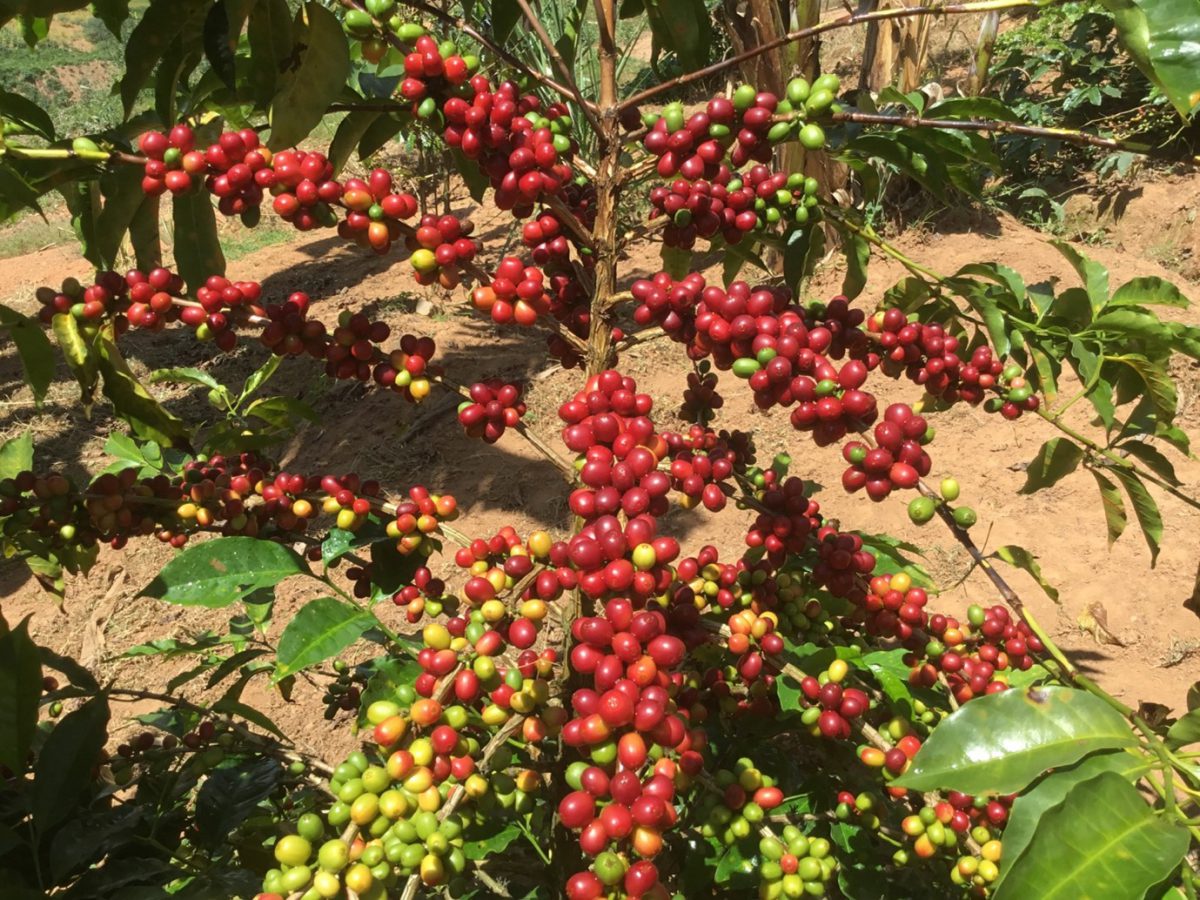
ACCORD has helped produce higher yields and better quality cherries
SF Bay Coffee has also been able to improve agronomic support to coffee farmers through the employment of tech savvy university graduates equipped with the ACCORD platform. With the relevant training, these interns have mapped farms, set up demonstration plots, scouted for pests and diseases, and trained farmers on their own farms.
SF Bay Coffee has been able to achieve increased production and quality at its own farm as well as from its network of smallholder farmers. Its innovative approach to coffee farming is the driver of this success and that innovation has been extended to many smallholder farmers thanks to ACCORD. Farmers appreciate the alerts and advice they receive via their mobile phones, as evidenced through latest farmers surveys, where 97.8% of farmers reported taking recommended actions, 98.3% reported positive change in the health of their crop, and 97.2% reported being satisfied with the service, overall.
The proof ultimately is in the coffee. Having achieved 90+ scores in the Rare Specialty Category there is no doubt as to the quality of SF Bay Coffee. So next time you enjoy a taste of that fine brand, raise your cup to innovation.
International Partnership Programme
The International Partnership Programme (IPP) is a five-year, £30 million-per-year initiative run by the UK Space Agency. It focuses on using the UK space sector’s research and innovation strengths to deliver sustainable economic or societal benefit to developing economies around the world. IPP is part of, and is funded from, the Department for Business, Energy and Industrial Strategy’s Global Challenges Research Fund (GCRF). GCRF is a £1.5 billion fund announced by the UK Government which supports cutting-edge research and innovation on global issues affecting developing countries.

